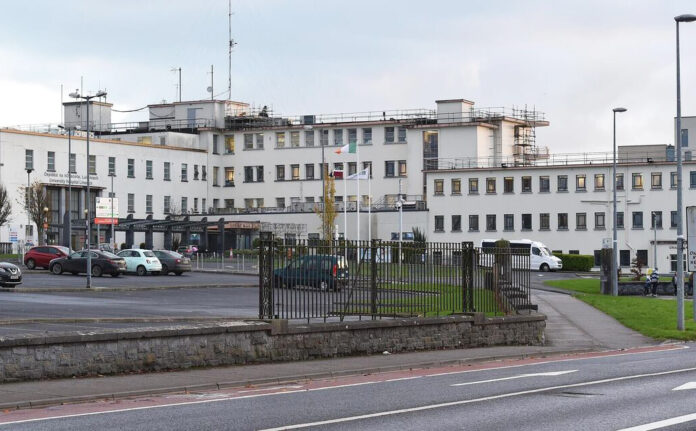
MASSIVE September overcrowding at University Hospital Limerick (UHL) is a “red flag” for a miserable winter, nurses representatives have warned.
Limerick topped the table of the most overcrowded hospitals in the country in September, with 2,174 admitted patients having to wait for a bed across the month.
The figure far outstripped the next most overcrowded hospital, Cork University Hospital with 1,024 patients on trolleys during the month. Numbers come from the Irish Nurses and Midwives (INMO) Trolley Watch count.
On Wednesday of last week (September 27) UHL issued an appeal to patients to seek alternatives to the Emergency Department, as 124 admitted patients were reported to be on trolleys that morning.
It was the second time this year that the number of patients on trolleys hit the 124 peak, just two less than the all-time record of 126 on trolleys in April 2022.
Speaking about the latest figures, INMO General Secretary Phil Ní Sheaghdha said: “September has always been a reliable indicator of how the winter is going to look for healthcare staff, and the situation that our members are predicting based on these figures as was the case in August indicates a huge red flag.”
“At this point of crisis in any other industry, a risk assessment would be carried out and risk mitigation measures put in place, this is even more necessary in the delivery of human healthcare services.
“Following our engagements with the HSE at the most recent Emergency Department Taskforce meeting, we don’t believe that the HSE are willing at this point to put the necessary measures in place. There needs to be a serious mindset shift if we are to see improvements.”
The INMO General Secretary added that “when patient-facing clinicians like doctors and nurses are raising the alarm in August and September about the current inadequacies in care and the potential for the already high level of risk to worsen over the coming weeks as we enter winter, then the response from the HSE and Government must be more focused on risk mitigation and curtailing services to meet the requirements of basic safety levels”.
“Our members are very worried for themselves and the people in their care. Without real action, the State is basically just asking staff and patients to lower their expectations for their health service.”
Ms Ní Sheaghdha called for risk reduction measures to be introduced “now – not when it is too late and an inevitable adverse incident occurs”.


